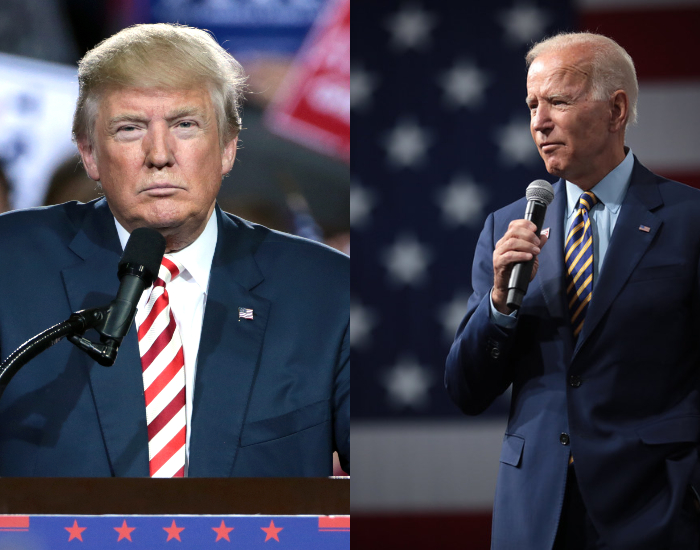What is said in China about the Trump-Biden duel

Politicians and geopolitics analysts in China analyze the US election dispute between Trump and Biden on the columns of the South China Morning Post
There is no place where the Beijing presidential election will be more closely watched.
China is following with obvious frenzy the competition between Trump and Biden to see if another four years of open confrontation by a re-elected Trump or a different approach by a victorious Biden awaits on the horizon.
The debate in this sense in China is frenetic and full of contributions such as that of Shi Jiangtao, whose article yesterday even inaugurated a series of the South China Morning Post on the subject enriched by the opinion of numerous sinologists and Chinese experts from various backgrounds.
Shi's article begins by emphasizing that the prevailing climate in China corresponds with the hope that the elections will lead to a reset of relations regardless of who wins the challenge on November 3.
This at least is the opinion of Pang Zhongying, an expert in international affairs at the Ocean University of China, for whom the election "opens a window of opportunity for both sides to give up the Cold War-like confrontation."
In the circle of Chinese experts, however, there is also a lot of realism. An example is that of George Magnus, a professor at the China Center of the University of Oxford, for whom Beijing expects nothing in terms of substance from this election, only possible and imperceptible changes in the form and style of the relationship between the two superpowers . In other words, Beijing "is resigned for the period immediately to come to a bitter relationship" with the US.
Magnus's opinion is also shared in part by Robert Sutter, a professor of international affairs at George Washington University, who witnessed a clear change in rhetoric even in Biden's speeches when, in March, the theory that Covid began to circulate. -19 had sprung from a Wuhan laboratory. In that circumstance, the hammering against Beijing came in equal measure from both candidates
Yet many sinologists sincerely hope that a Biden president can prevail at the polls and then bury the hatchet. They remember that the former vice president was one of the first parliamentarians to set foot in China after Nixon's historic visit, who met Deng Xiaoping in 1979, and that Xi Jinping once described him as "my old friend".
As for Biden, his openness to the former middle empire and its leaders is openly vindicated, as he did during an event at the Council on Foreign Relations in 2018 in which he said he "spent more time in private meetings with Xi Jinping than any other world leader ”(according to the candidate's calculation, this would be 25 hours of private dinners).
This is why in China the moderate and internationalist fringes would hope for his victory, which would restore normality, moderation and even intensity to a relationship that has so far been heavily damaged.
For Robert Daly, director of Wilson Centre's Kissinger Institute, Biden would first of all abstain from any form of abrasive rhetoric, would return to engaging America in international forums, and above all would seek Beijing's cooperation on the basis of strategic calculations and not mere impulses of the moment.
"All these factors", concludes Daly, "would bring a certain level of stability" to a relationship that for the moment is not defined as dancer.
The opinion of Gal Luft, co-director of the Institute for the Analysis of Global Security in Washington, differs slightly from that of Daly. According to him, no candidate will be able to absorb years and years of hostility and negative perception of China in America.
However, adds Luft, "if the choice is between détente and peace, Biden is more likely to offer the former."
For Luft, a Biden victory would represent "an opportunity for the two sides to turn the page, revitalize their frank strategic dialogue and (stop) with the Chinese psychosis we suffered under Trump",
Orville Schell, director of the Asia Society Center in New York, responds to those who think Biden will be soft on China , for whom the candidate's collaborators are known to be a group of "hard and intelligent people who think that Beijing's current ambitions …. are excessive, illegal, dangerous and unacceptable ".
That said, Schell is also convinced that the Biden team will work to find new "frames of collaboration" and, above all, that "these men and women will be far better at negotiating" than the members of Team Trump.
Magnus of the China Center, on the other hand, seems to harbor some skepticism about possible future changes. "The systemic nature of the adversary relationship ( between the US and China ) means that any person will be able to manage things differently but certainly not alter the trajectory".
Magnus defines wishful thinking as that of those who think that a Biden victory can magically change things and usher in a golden season for Washington-Beijing relations. "I hope it happens", is his conclusion, "but we should prepare for a better but not necessarily restored relationship".
This is a machine translation from Italian language of a post published on Start Magazine at the URL https://www.startmag.it/mondo/che-cosa-si-dice-in-cina-sul-duello-trump-biden/ on Tue, 01 Sep 2020 05:42:03 +0000.
